The ugly face of dictatorship
Adelina Marini, February 23, 2011
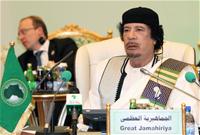 We should remember, although here tanks never entered and we were never beaten in the streets in order to continue to endure a long-standing leader. But the Hungarians for sure remember, as well as the Czechs. Now in the second decade of the 21st century we are witnessing horrible repressions in North Africa. Libyan leader Muammar Gaddafi is trying to keep his 40-year long rule by force. Well, we might not remember the Prague Spring or the entering of tanks in Budapest but how Col Gaddafi acts we certainly do very well. What is worse is that, unlike the other north-african and middle-eastern countries where there are uprisings at the moment, in Libya the access of journalists is practically cut off. No one knows for sure how any the killed are and what exactly is happening there.
We should remember, although here tanks never entered and we were never beaten in the streets in order to continue to endure a long-standing leader. But the Hungarians for sure remember, as well as the Czechs. Now in the second decade of the 21st century we are witnessing horrible repressions in North Africa. Libyan leader Muammar Gaddafi is trying to keep his 40-year long rule by force. Well, we might not remember the Prague Spring or the entering of tanks in Budapest but how Col Gaddafi acts we certainly do very well. What is worse is that, unlike the other north-african and middle-eastern countries where there are uprisings at the moment, in Libya the access of journalists is practically cut off. No one knows for sure how any the killed are and what exactly is happening there.
Libya
I remember that during the crisis with the Bulgarian medics in Libya the son of Col Gaddafi, Seif al-Islam, appeared to be the person - symbol of the new dictatorship generation - well educated, can be talked to, young and open to deals. After Sunday, however, I am seriously scared. In a statement on the State TV, in which the body language demonstrated he was the owner of everything around him and as if he was a mentor, Seif al-Islam conveyed several ridiculous threats. One of them is that if the uprising continues, Libya will fall into a civil war and this would even lead to renewing Western colonisation of the oil-rich country, if the 40-year rule of his father does not end.
Further on Gaddafi-son said that Libya was neither Egypt nor Tunisia. And here the son is indeed right. Because both Tunisia and Egypt, and also Bahrain and even Yemen, are relatively open to the West, with a more loose grip of power. While in Libya the sins are double - on the one hand Col Gaddafi has been ruling for 40 years with an iron hand and the West has several times infringed its own principles in the name of lucrative deals with him. Such was the case with the indicted suspect of 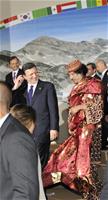 perpetrating the Pan-Am flight bomb attack over Lockerbie in 1988 (al-Megrahi) when the former British prime minister, Tony Blair, concluded a deal with Gaddafi and had al-Megrahi return to Libya (though sentenced to life in prison).
perpetrating the Pan-Am flight bomb attack over Lockerbie in 1988 (al-Megrahi) when the former British prime minister, Tony Blair, concluded a deal with Gaddafi and had al-Megrahi return to Libya (though sentenced to life in prison).
The same happened several times during the crisis with the Bulgarian medics (which lasted 9 years) when Italian PM Silvio Berlusconi struck important trade deals with Italy's southern oversees neighbour and, while helping for the release of our medics, French leader Nicolas Sarkozy also concluded lucrative deals with Gaddafi. It is why West's reactions are diverse, if available at all. Moreover, two of EU's member states (Italy and the Czech Republic) spoke even in support of the Libyan leader by saying that it would be better if he remained if he promised that he would realise the reforms, demanded by the protesters.
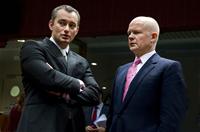 Bulgarian Foreign Minister Nickolay Mladenov tweeted from the Foreign Affairs Council on Monday that what was happening in Libya should not be tolerated and hoped for unanimity within the European Union. A little later Minister Mladenov came up with a declaration, deploring the situation in Libya but not offering how the problem to be solved: "Bulgaria is deeply concerned with the harsh deterioration of the situation in Libya. I call on the authorities to do their utmost to stop the escalating violence. We also call for national dialogue in the country that would respond to the legitimate demands for reforms, by in the same time keeping Libya's territorial integrity. We rely on the Libyan authorities to guarantee the safety of the Bulgarian citizens and that they would cooperate for them to leave the country", the Ministry of Foreign Affairs' statement says. And by the evening the evacuation plan was ready for the Bulgarian citizens in the country.
Bulgarian Foreign Minister Nickolay Mladenov tweeted from the Foreign Affairs Council on Monday that what was happening in Libya should not be tolerated and hoped for unanimity within the European Union. A little later Minister Mladenov came up with a declaration, deploring the situation in Libya but not offering how the problem to be solved: "Bulgaria is deeply concerned with the harsh deterioration of the situation in Libya. I call on the authorities to do their utmost to stop the escalating violence. We also call for national dialogue in the country that would respond to the legitimate demands for reforms, by in the same time keeping Libya's territorial integrity. We rely on the Libyan authorities to guarantee the safety of the Bulgarian citizens and that they would cooperate for them to leave the country", the Ministry of Foreign Affairs' statement says. And by the evening the evacuation plan was ready for the Bulgarian citizens in the country.
High Representative Catherine Ashton also deplored the situation in Libya but 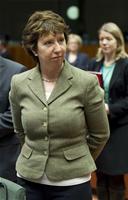 was short in her statement before journalists in Brussels as she was in a hurry to leave for Egypt. In the Council's conclusions it is said that the ministers of foreign affairs of the EU condemn the repressions against protesters in Libya, as well as the violence and the death of civilians. They also call for an immediate end of the use of force against protesters. "Freedom of expression and the right to assemble peacefully are human rights and fundamental freedoms of every human being which must be respected and protected. The legitimate aspirations and demands of people for reform must be addressed through open, inclusive, meaningful and national Libyan-led dialogue", the conclusions read.
was short in her statement before journalists in Brussels as she was in a hurry to leave for Egypt. In the Council's conclusions it is said that the ministers of foreign affairs of the EU condemn the repressions against protesters in Libya, as well as the violence and the death of civilians. They also call for an immediate end of the use of force against protesters. "Freedom of expression and the right to assemble peacefully are human rights and fundamental freedoms of every human being which must be respected and protected. The legitimate aspirations and demands of people for reform must be addressed through open, inclusive, meaningful and national Libyan-led dialogue", the conclusions read.
After almost a week of protests, accompanied by violence, the American Secretary of State, Hillary Clinton, too came out with a declaration, condemningthe situation in Libya. "The world is watching the situation in Libya with alarm. We join 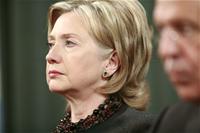 the international community in strongly condemning the violence in Libya. Our thoughts and prayers are with those whose lives have been lost, and with their loved ones. The government of Libya has a responsibility to respect the universal rights of the people, including the right to free expression and assembly. Now is the time to stop this unacceptable bloodshed. We are working urgently with friends and partners around the world to convey this message to the Libyan government."
the international community in strongly condemning the violence in Libya. Our thoughts and prayers are with those whose lives have been lost, and with their loved ones. The government of Libya has a responsibility to respect the universal rights of the people, including the right to free expression and assembly. Now is the time to stop this unacceptable bloodshed. We are working urgently with friends and partners around the world to convey this message to the Libyan government."
It is a little hard for a man like Col Gaddafi to understand how exactly freedom of expression and of peaceful gathering are fundamental rights since he has never experienced that.
In the meantime the Libyan ambassadors to the United Nations called on their leaders to step down. Furthermore, the Libyan envoy to the UN, Ibrahim Dabbashi, said, quoted by the Washington Post on Monday, that if Gaddafi refused to step down, the "Libyan people would get rid of him". Dabbashi called on the international community to impose a non-fly zone over Libya to prevent mercenaries, weapons and other supplies to reach Gaddafi and his security forces. He added that the Libyan delegation to the UN called on the International Criminal Court to investigate possible crimes against humanity, perpetrated against the Libyan people during the current protests.
This statement of the Libyan diplomat is another in a series of "defections" in Libya. For now, however, it is hard to predict to what extent it is possible Gaddafi to resign. Besides, it is not certain who will succeed him if he steps down.
Libya's ambassador to Washington also joined his colleagues by calling on Muammar Gaddafi to resign. "How can I support the government that is killing our people?", ambassador Ali Aujali explained. In the meantime, the Libyan leader showed up on State TV in a very bizarre way to announce within seconds that he was in Libya and not in Venezuela. In a room that looks like a basement with leaking water, the Libyan leader is sitting in an old car with an umbrella, and a man beside him is holding a microphone. The situation in the country is deteriorating with every minute now.
Egypt
The situation in Egypt looks much better against the backdrop of the other countries with unrest in the region, at least in terms of possibilities for influence of the international community. Since on February 11th Hosni Mubarak stepped down after a 30-year rule, the Egyptians again filled the Tahrir Square a week later (February 18th) in order to celebrate a week without Mubarak, as well as to remind the new military government that it had to stick to its promise to remain in power for only 6 months, to prepare free and fair elections, to release all political prisoners, as well as to investigate the crimes of Mubarak's regime.
First of the world leaders to visit the Egyptian capital was British PM David 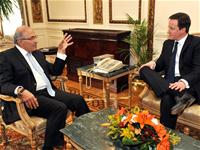 Cameron, who arrived there unannounced. Several hours later in Cairo arrived baroness Catherine Ashton. She managed to visit the country in her second attempt after the first time she was refused a visit and she had to reduce herself to only visiting Tunisia. The main goal of Mr Cameron's visit was to make sure that a genuine transition from military rule to civil one would take place, as well as to express Britain's and EU's support.
Cameron, who arrived there unannounced. Several hours later in Cairo arrived baroness Catherine Ashton. She managed to visit the country in her second attempt after the first time she was refused a visit and she had to reduce herself to only visiting Tunisia. The main goal of Mr Cameron's visit was to make sure that a genuine transition from military rule to civil one would take place, as well as to express Britain's and EU's support.
In their conclusions from the Foreign Affairs Council on February 21st, EU's ministers of foreign affairs have written that they are ready for a new partnership with their southern neighbours, which however will be directed to those countries that pursue political and economic reforms and stand ready to share European experience of transition. Concrete political initiatives are yet to be formulated together with packages of support, based on existing programmes.
In the meantime, the military government in Cairo is signalling that it is ready to fulfill all the demands of the protesters and the international community, including by promising to request freezing of the financial assets of Hosni Mubarak and his family - something which has been down even by Switzerland and also by the UK.
Yemen
The situation in Yemen is tensed and complex. The country's leader Ali Adbullah Saleh said at a press conference on Monday that he would not succumb to the demands of the protesters which for more than 10 days demand his resignation. Yemen's president conveyed the typical for the dictators question: "Why do they want to go back to chaos?" and offered negotiations to discuss political reforms, instead of leaving three decades of authoritarian rule.
Bahrain
Protests continue in Bahrain too, one of United States' key allies in the region. The small country, situated on the Persian Gulf, hosts Fifth American Fleet and is considered to be of strategic importance to Washington in the region. The small kingdom differs significantly from the rest of the revolting countries because it is much richer and, as it seems, the main conflict might prove to be sectarian. The royal family of Hamad ibn Isa Al Khalifa are Sunnites while most of Bahrain's citizens are Shia.
Iran
In the meantime Iranian warships entered the Mediterranean. According to official Iranian statement the ships are bound for military exercises in Syria but at its government session on Sunday Israel condemned these actions as being a provocation and Prime Minister Netanyahu explained that it was necessary the budget for defence to be increased. According to the BBC this is the first passage of Iranian warships through the Suez canal since the 1979 revolution.
In the same time, revolt has started in Morocco too, which even more intrigues with the question what exactly sparked these societies to rebel right now.
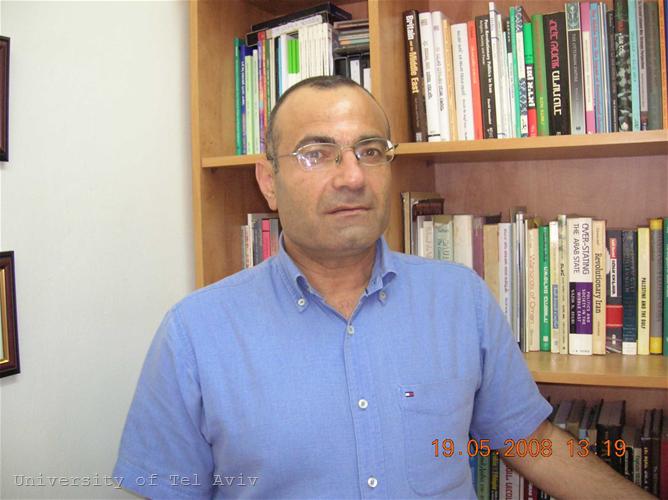 | © University of Tel Aviv
| © University of Tel Aviv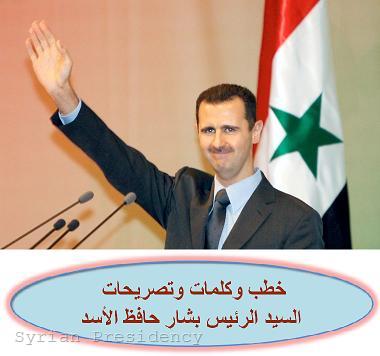 | © Syrian Presidency
| © Syrian Presidency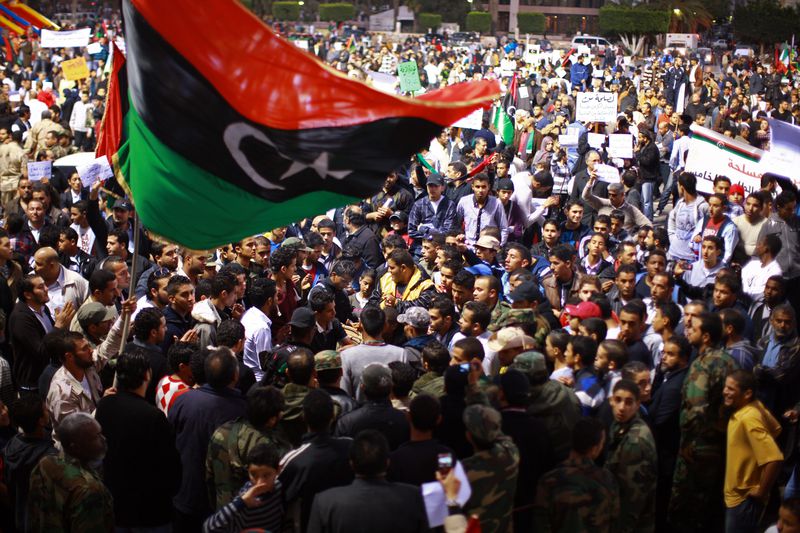 | © UN
| © UN